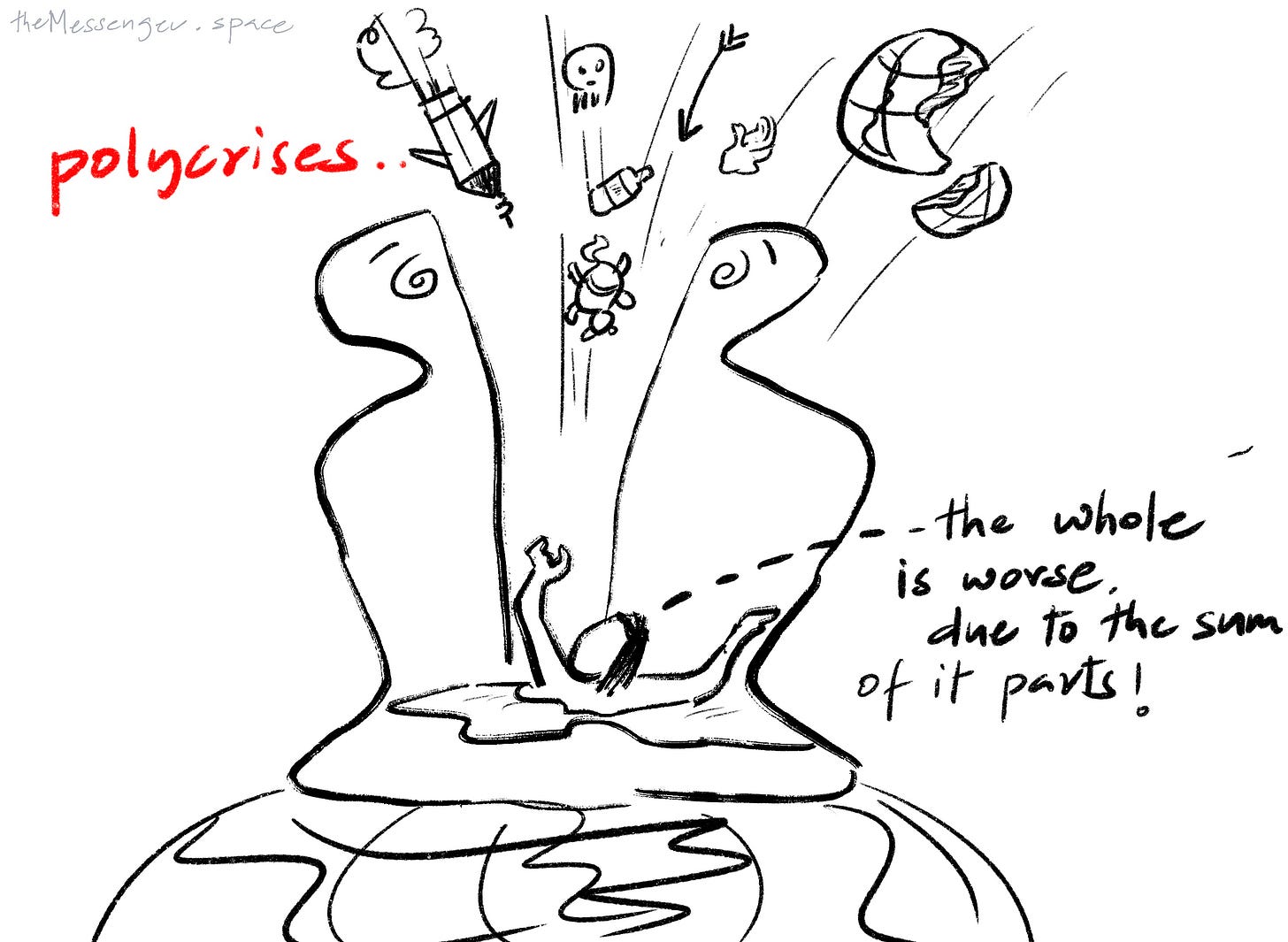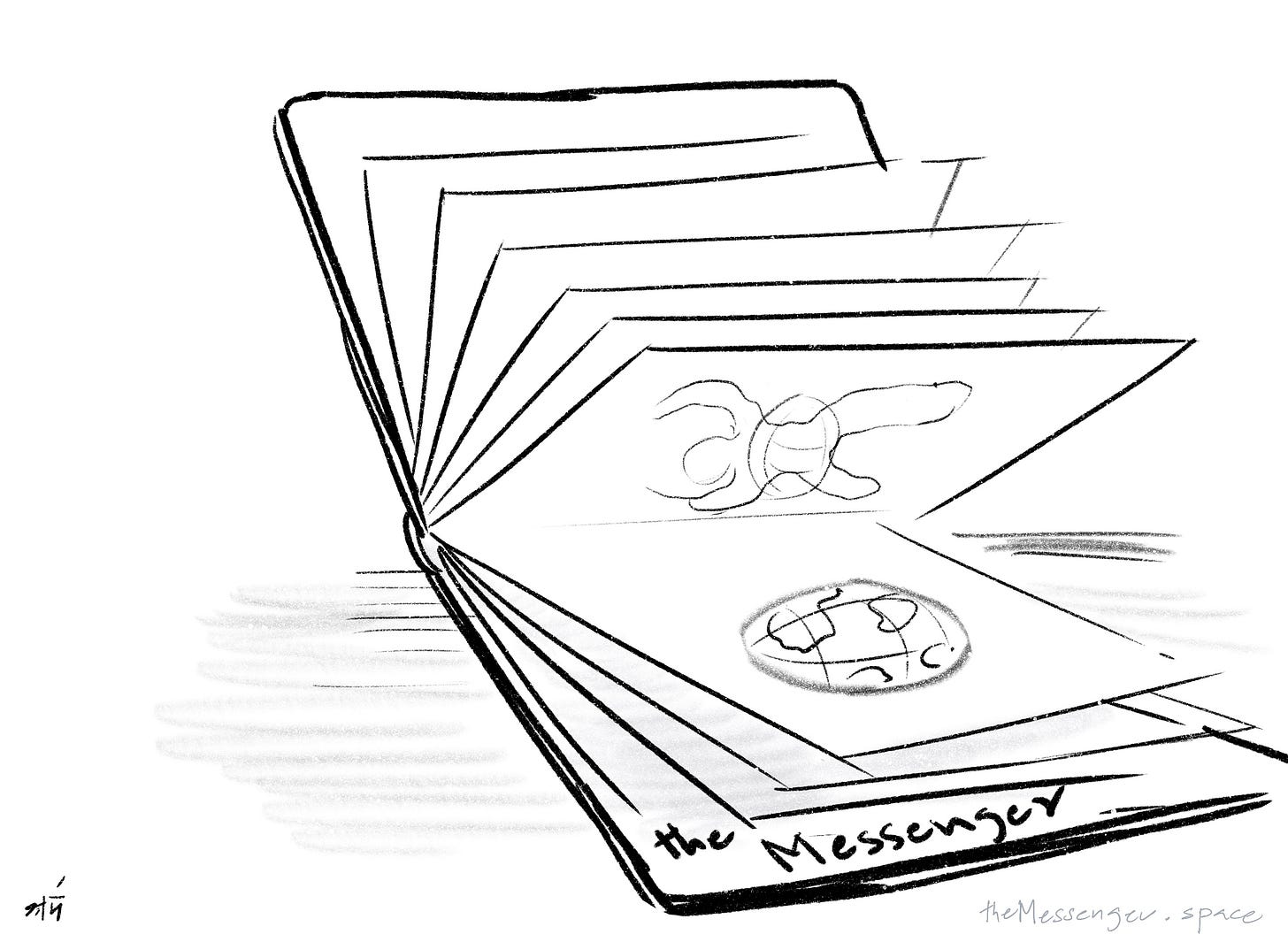If a Tree falls in a Forest can you hear it?
Two Design Challenges. Ecological Thought 2/N
We are getting ready for the big reveal, Messenger 2.0, with all kinds of new shiny features.
Wicked Design
Many people, thoughtful people at that, have a poor opinion about philosophy and wisdom. They think philosophy is a has-been discipline: too many words and too little application. It’s a pretty short sighted view, but one encouraged by the actions of academic philosophers who set themselves apart from the questions of justice and meaning that animate all of us.
If the acquisition of wisdom is as much a craft and art as it is a science, philosophy is a lot like design — addressing genuine human (and nonhuman!) needs while alerting us to the fact that these needs are bound to a certain time and place.
Design isn’t arbitrary, for it addresses objective needs of a human community. Design also needs creativity and human agency. At the same time, design problems have a history — a problem isn’t a design problem until the time is ripe. Or as we like to say: if its not wicked it’s not wise.
What if we subject wisdom to a design critique?
Here are two design challenges:
Designing for Polycrises
This week’s essay starts with the meme of the year: polycrisis. It’s a term that’s been popularized by Adam Tooze and was the theme of the recently concluded World Economic Forum. A polycrisis is when the whole is worse than the sum of its parts, an ecosystemic failure mode. Climate change is considered to be the biggest polycrisis of the lot, the Polydada. Polycrisis talk is mostly negative (it’s worse than the sum of its parts after all!) but here we offer a contrarian opinion: it’s a good thing climate change is being normalized by being linked to other crises.
Why is linking good?
We know social media is a major source of fake news that’s corroding democracy. Imagine if the dominant resistance to social media influence was that it’s a plot by a hidden AI matrix to take over the planet. Is such conspiratorial thinking a good thing or a bad thing? It would be totally useless wouldn’t it, for neither does it identify an accurate culprit nor does it offer a path forward. Much better to link fake news with other parallel developments: the increasing competitiveness of electoral politics, rising inequality, the faster spread of negative news compared to positive news…..
Concern for the planet is essential and worry that we might destroy the basis for all life is - of course! - a good worry. At the same time, we want to walk the right side of the fine line between alarm and petrifying fear. Neither do we want to embrace a technocratic position in which we unleash the creative energies of Silicon Valley upon the climate crisis and trust all will be well.
What could be an alternative? Here’s an idea:
The planet is acknowledged as a planet, not as an extension of human society or its god given playground.
Human social and technical institutions are transformed to induct planetary processes into their spaces of concern and responsibility.
There’s no such thing as ‘economy and ecology’ or ‘nature and society’ — there’s only the planet.
Wouldn’t that be good?
How might we design such a space for ecological thought?
Incentives Matter
There’s no greater cliche than “you’re missing the woods for the trees,” like what kind of idiot are you that you can’t see the big picture. And like all systems thinkers, we lean back in our chairs with a smug smile when someone’s a tree thinker instead of a wood thinker.
But as economist will tell you: incentives matter.
If you want people to be wicked (not in the ‘master of doom’ sense, but in the ‘wood thinking’ sense), you need to improve the UI and UX of becoming wicked. Incentives are a huge part of the UX of any behaviour change and the sad truth is: we are almost never incentivized to be wicked minds.
Remember that other cliche: “it’s take a village to raise a child”? Cultivating any difficult skill takes many resources. If you want to become a singer in the Gwalior gharana, you will have to train for years with a master. But training is not enough. The availability of masters depends on classical music having patronage, rasikas who attend concerts and concert halls for those who want to attend performances. Each one of these: masters, listeners, venues are incentives for the others to exist.
Here’s a good challenge for ecosystem thinkers: how to design interlocking incentives that enable an entire ecosystem to emerge and sustain itself?
Let’s unpack that challenge a little bit. It immediately suggests several other incentives:
How to incentivize collaboration in the absence of a central authority?
How to incentivize ecosystem products that can’t be created by any single entity?
How to embed ecosystem thinkers in traditional organizations and get them to take these ETs seriously?







